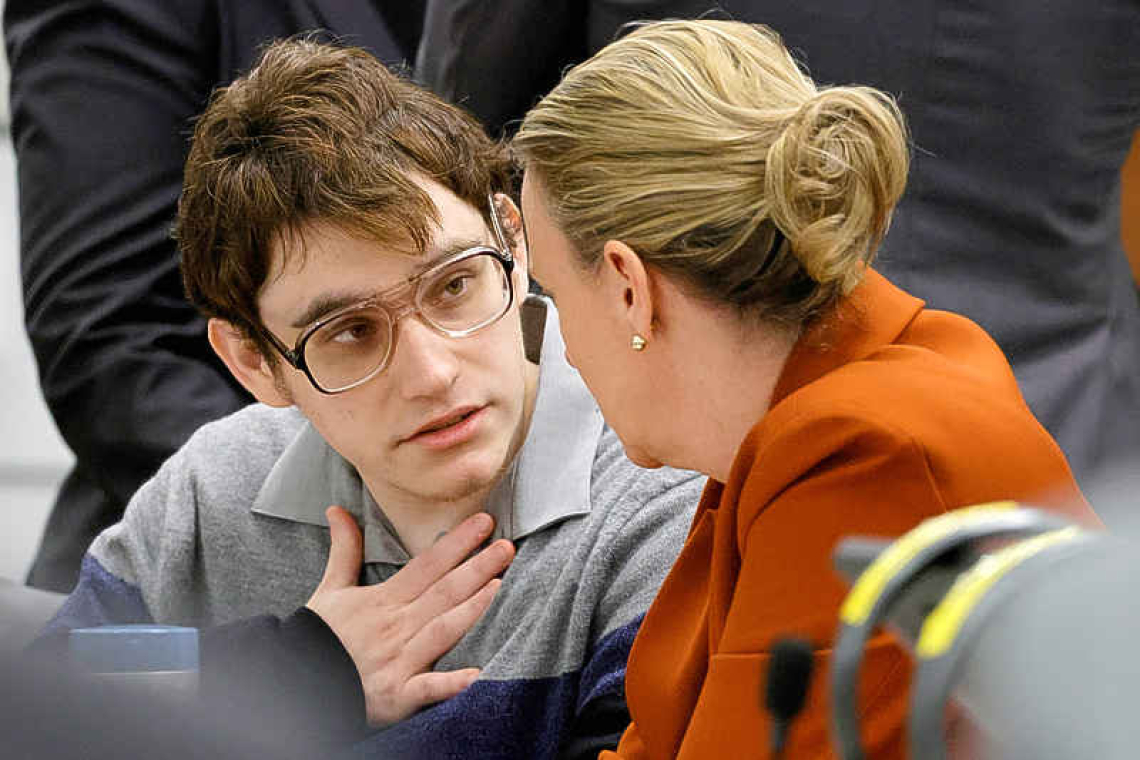MIAMI--A Florida jury on Thursday decided to spare Nikolas Cruz, the gunman who killed 17 people in 2018 at a high school in the city of Parkland, from the death penalty, instead calling for life in prison without possibility of parole.
Some family members of victims shook their heads in the Fort Lauderdale courtroom as the jury rejected the prosecution's request for the death penalty for Cruz in one of the deadliest school shootings in U.S. history. Cruz, 24, showed little emotion while sitting at the defense lawyers' table attorney as the verdict was read.
Cruz pleaded guilty last year to premeditated murder at Marjory Stoneman Douglas High School in Parkland, about 30 miles (50 km) north of Fort Lauderdale. Cruz, who was 19 at the time of the crime and had been expelled from the school, used a semi-automatic rifle to kill 14 students and three staff members.
The jury found that mitigating factors, such as disorders described by witnesses as stemming from his biological mother's substance abuse during pregnancy, outweighed aggravating factors. The prosecution had argued that Cruz's crime was premeditated as well as heinous and cruel, which are among criteria that Florida law establishes for deciding whether a death sentence should be imposed.
Under Florida law, a jury must be unanimous in deciding to recommend that a judge sentence a defendant to be executed, requiring a conclusion that aggravating factors outweighed mitigating factors on at least one criminal count. Jury foreperson Benjamin Thomas told a Florida TV station that one juror insisted that Cruz not get the death penalty because of his mental illness.
"There was one with a hard 'no,' she couldn't do it," Thomas said in an interview posted on the website of CBS Miami affiliate WFOR-TV, adding that two other jurors "ended up voting the same way."
Some family members expressed dismay that jurors did not call for the death penalty. "I'm disgusted with our legal system. I'm disgusted with those jurors," said Ilan Alhadeff, whose daughter Alyssa Alhadeff was killed. "... What do we have the death penalty for? What is the purpose of it?"
"It's pretty unreal that nobody paid attention to the facts of this case, that nobody can remember who a victim is and what they look like," added Tony Montalto, whose daughter Gina was killed. "I know every day because I see my beautiful daughter's face around our home and in my dreams and I miss her very much."
The three-month penalty phase of the trial included harrowing testimony from survivors as well as cellphone videos taken by students that day showing them crying for help or speaking in whispers while in hiding. Defense witnesses included Cruz's half-sister, who testified that their mother drank heavily and used drugs including cocaine while she was pregnant with Cruz. When Cruz pleaded guilty, he apologized for the killings and said he wants to dedicate his life to helping others.







